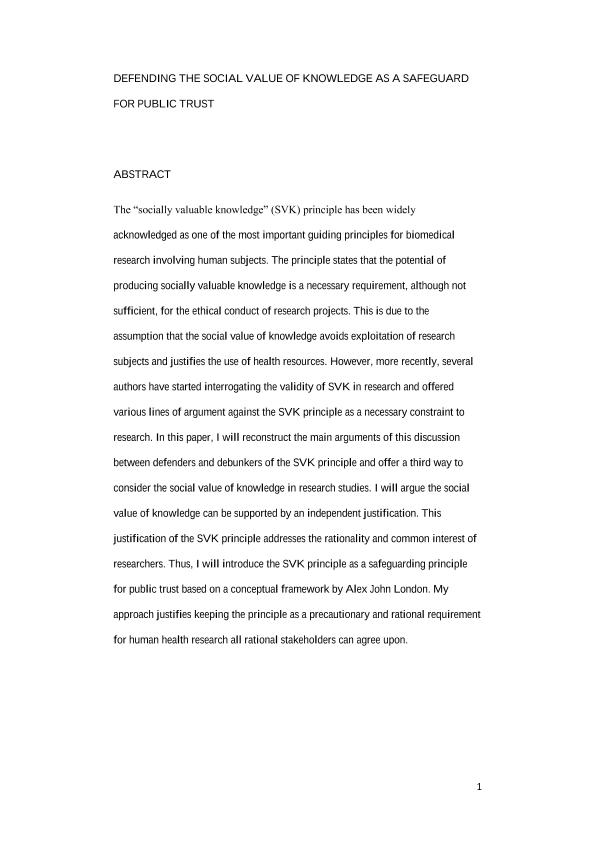Artículo
Defending the social value of knowledge as a safeguard for public trust
Fecha de publicación:
09/2017
Editorial:
Wiley Blackwell Publishing, Inc
Revista:
Bioethics
ISSN:
0269-9702
Idioma:
Inglés
Tipo de recurso:
Artículo publicado
Clasificación temática:
Resumen
The ‘socially valuable knowledge’ (SVK) principle has been widely acknowledged as one of the most important guiding principles for biomedical research involving human subjects. The principle states that the potential of producing socially valuable knowledge is a necessary requirement, although not sufficient, for the ethical conduct of research projects. This is due to the assumption that the social value of knowledge avoids exploitation of research subjects and justifies the use of health resources. However, more recently, several authors have started interrogating the validity of SVK in research and offered various lines of argument against the SVK principle as a necessary constraint to research. In this article, I will reconstruct the main arguments of this discussion between defenders and debunkers of the SVK principle and offer a third way to consider the social value of knowledge in research studies. I will argue that the social value of knowledge can be supported by an independent justification. This justification of the SVK principle addresses the rationality and common interest of researchers. Thus, I will introduce the SVK principle as a safeguarding principle for public trust based on a conceptual framework by Alex John London. My approach justifies keeping the principle as a precautionary and rational requirement for human health research that all rational stakeholders can agree upon.
Palabras clave:
Human Health Research
,
Public Trust
,
Social Value of Knowledge
Archivos asociados
Licencia
Identificadores
Colecciones
Articulos(SEDE CENTRAL)
Articulos de SEDE CENTRAL
Articulos de SEDE CENTRAL
Citación
Holzer, Felicitas Sofia; Defending the social value of knowledge as a safeguard for public trust; Wiley Blackwell Publishing, Inc; Bioethics; 31; 7; 9-2017; 559-567
Compartir
Altmétricas




